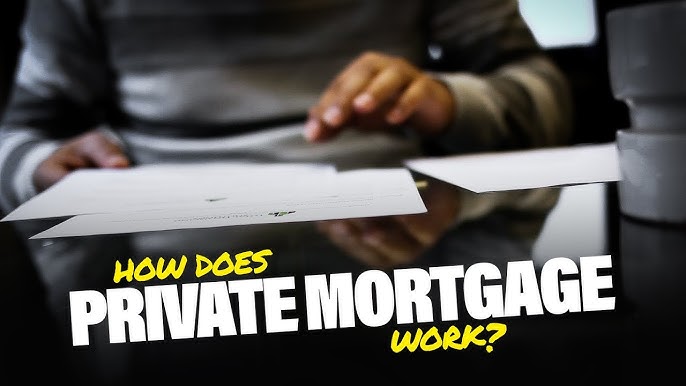Exploring alternative financing with private mortgage lenders savannah ga
Just how It Works: A Comprehensive Overview to Mortgage Lending for First-Time Customers
Maneuvering the globe of mortgage lending can be frightening for newbie buyers. Recognizing the essential elements like principal, rate of interest, and deposits is crucial. In addition, recognizing the various types of mortgage finances and the application procedure can considerably impact one's experience. By checking out crucial factors that influence rate of interest, purchasers may discover useful understandings. What else should they think about prior to making such a considerable financial dedication?
Understanding Mortgage Essentials
When first-time buyers enter the domain name of homeownership, comprehending mortgage basics ends up being critical for making informed choices. A mortgage is fundamentally a funding safeguarded by the residential property being purchased, enabling people to acquire a home without paying the full rate upfront. Purchasers must be mindful of key elements, including principal, interest, tax obligations, and insurance, often summed up as PITI. The principal is the quantity obtained, while rate of interest is the price of borrowing that amount, expressed as a percent. Taxes and insurance coverage are additional prices that can noticeably impact monthly payments. Purchasers need to also consider the loan term, commonly 15 or 30 years, which impacts payment quantities and general rate of interest paid. Recognizing credit score scores is important, as they influence funding eligibility and rate of interest. Grasping these essential principles encourages novice buyers to browse the mortgage landscape with confidence and make options that line up with their financial objectives.
Sorts Of Mortgage Loan
When taking into consideration mortgage alternatives, first-time buyers commonly run into two key types: fixed-rate and adjustable-rate home loans. Fixed-rate home loans offer security with constant settlements over the finance's term, while adjustable-rate home loans can provide reduced initial rates that might vary with time. Comprehending these differences is crucial for making an educated decision.
Fixed-Rate Home loans
Fixed-rate home loans give security and predictability for novice buyers navigating the intricacies of home funding. With a fixed-rate mortgage, the rates of interest continues to be constant throughout the car loan term, usually ranging from 15 to 30 years. This regular rate allows purchasers to intend their budget plans properly, knowing that their regular monthly payments will certainly not rise and fall. First-time customers take advantage of this framework as it removes unpredictability in lasting economic commitments. Additionally, fixed-rate home loans commonly feature lower first prices compared to adjustable-rate alternatives, making them an eye-catching choice for those wanting to establish home equity gradually. Overall, fixed-rate home mortgages supply a simple course to homeownership, suitable for individuals seeking long-lasting monetary protection.
Adjustable-Rate Mortgages
For new homebuyers seeking versatility, variable-rate mortgages (ARMs) can supply an attractive choice to fixed-rate financings. ARMs typically supply lower initial passion prices, making month-to-month settlements much more budget-friendly in the early years. Nonetheless, these rates change after a preliminary fixed period, which can cause enhanced repayments with time. Debtors should comprehend the index and margin that figure out future price adjustments. Generally, ARMs have modification durations of one, 3, or five years, with periodic caps to restrict just how much rates can raise at each adjustment. While ARMs can be useful for those planning to offer or re-finance before the rate changes, they also lug threats if market conditions transform considerably. Extensive research is important for notified decision-making.
The Mortgage Application Process

Trick Aspects Influencing Passion Prices

Deposits and Closing Expenses
Understanding deposits and closing expenses is crucial for novice buyers, as these expenses greatly influence the general affordability of a home loan. A deposit is the initial amount paid in the direction of the home's acquisition rate, normally revealed as a percent. It can vary from as reduced as 3% to 20% or even more, depending upon the finance type and lender needs. A larger deposit can reduce month-to-month mortgage settlements and remove personal mortgage insurance coverage (PMI), which secures loan providers in case of default.Closing expenses, on the various other hand, incorporate different charges incurred during the home-buying process. These might include financing origination costs, appraisal costs, title insurance policy, and attorney costs, usually amounting to 2% to 5% of the home's purchase price. First-time buyers ought to spending plan for both down settlements and shutting expenses to ensure they can protect their mortgage and successfully browse the home-buying process.
Tips for First-Time Homebuyers
What crucial tips can new buyers comply with to browse the typically difficult procedure of buying a home? First, setting a sensible spending plan is vital. Buyers must examine their monetary circumstance, consisting of income, expenses, and prospective mortgage settlements. Next, getting pre-approval for a home loan can offer quality on what one can pay for and enhance their setting when making an offer.Researching neighborhoods is just as vital; purchasers need to consider aspects such as facilities, colleges, and future developments. In addition, it is recommended to work with a qualified property agent that can use useful insights and guidance throughout the purchasing process.Home evaluations must not be forgotten, as they can discover covert concerns that may affect long-lasting contentment. Buyers need to continue to be patient and adaptable, recognizing that locating the ideal home may take time. By complying with these tips, first-time homebuyers can come close to the market with her latest blog self-confidence and knowledge.
Often Asked Inquiries
What Papers Are Required for Mortgage Pre-Approval?
For mortgage pre-approval, individuals This Site generally need to offer revenue confirmation, work history, credit scores reports, tax obligation returns, financial institution declarations, and details of any financial obligations (Private Mortgage Lenders Savannah GA). These documents assist loan providers examine monetary ability and figure out funding eligibility
Can I Obtain a Home Mortgage With Bad Credit Score?

Numerous loan providers consider applicants with negative debt, though terms might differ. Greater interest prices or larger deposits can be needed. Discovering options with specialized lending institutions or government programs can also enhance possibilities for authorization.
Exactly how Lengthy Does the Mortgage Approval Process Take?
The mortgage authorization process typically takes in between 30 to 45 days. Variables influencing this timeline include the lender's effectiveness, the consumer's monetary documentation, and the intricacy of the financing application. Delays might happen due to added needs.
What Takes place if I Miss a Home Mortgage Settlement?
If a home mortgage repayment is missed, late costs might be sustained, and credit rating scores can suffer. Prolonged non-payment might result in repossession procedures, motivating the loan provider to recover the building after a series of cautions.
Can I Re-finance My Mortgage Later?
Re-financing a home loan later on is typically feasible, enabling property owners to adjust their loan terms, rate of interest, or regular monthly payments. However, qualification relies on credit rating, current market conditions, and the existing mortgage's terms. Private Mortgage Lenders Savannah GA.